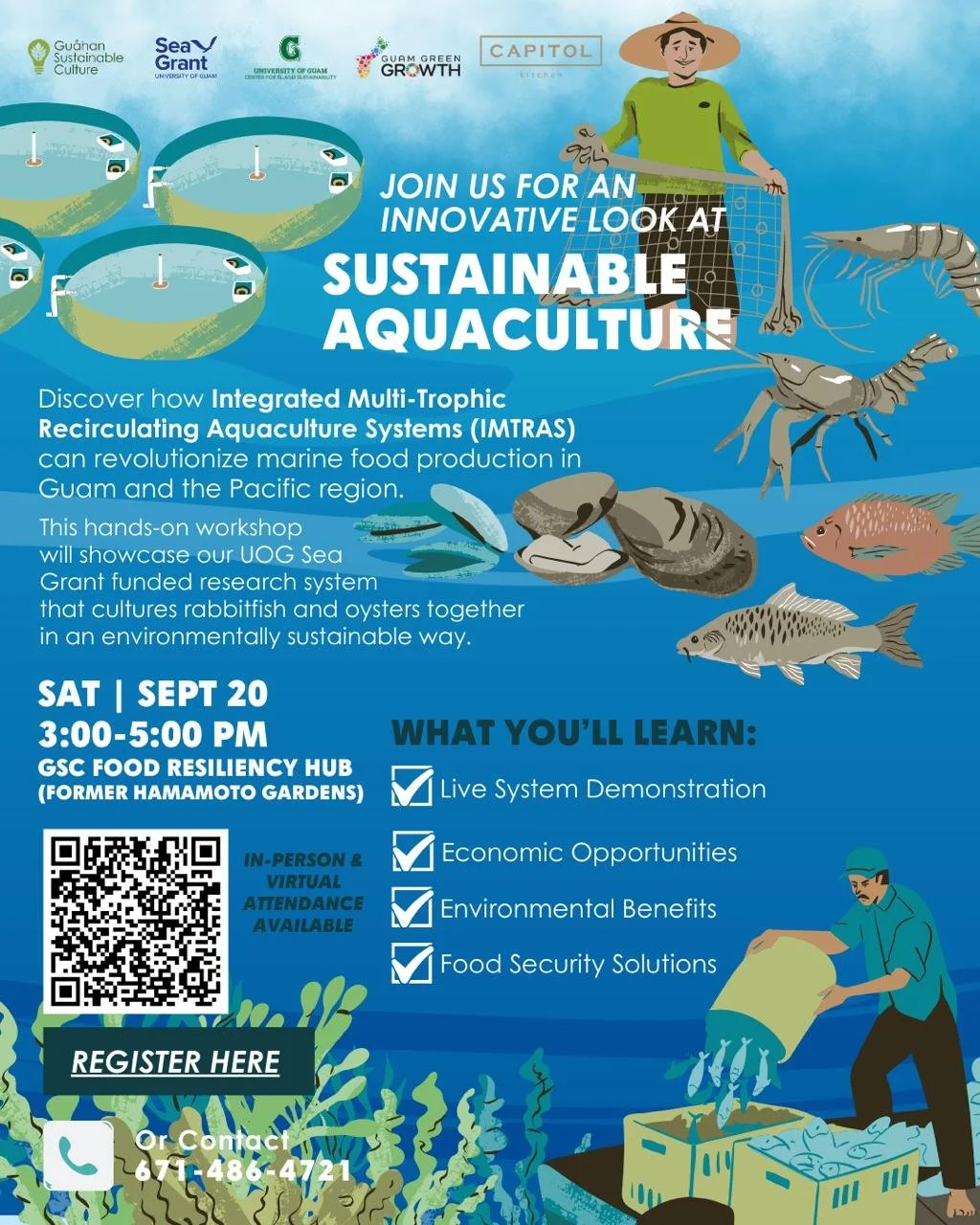Integrated Multi-Trophic Recirculating Aquaculture Systems (IMTRAS) Project
Strengthening Food Security and Environmental Enhancement with Oyster Gardens
About the Project
The IMTRAS (Integrated Multi-Trophic Recirculating Aquaculture Systems) project represents an innovative approach to sustainable marine aquaculture in Guam and the Pacific region. This groundbreaking two-year project, funded by the University of Guam Sea Grant Program, demonstrates how multiple marine species can be cultivated together in a self-contained, environmentally sustainable system that mimics natural ecosystems.
Key Innovation: IMTRAS integrates different trophic levels within a single system, where organisms at one level provide nutrients for organisms at another level, creating a regenerative cycle that maximizes efficiency and minimizes waste.
Project Goals
Design a recirculating aquaculture system to incorporate multi-trophic species and advance aquaculture in Guam and the Pacific region
Evaluate rabbitfish and oysters as emerging local native candidates for commercial aquaculture potential
Monitor all costs associated with system design and species grow-out to assess economic viability
Demonstrate sustainable marine food production methods that contribute to Guam's food security
Provide educational resources and training opportunities for the community
The IMTRAS System
How It Works
The IMTRAS concept applies Integrated Multi-Trophic Aquaculture (IMTA) principles within a recirculating aquaculture system. This approach allows for the production of marine species in a way that provides complementary use of waste to supply nutrients and nutrition to other species in the system.
System Synergy: Rabbitfish provide nutrients that stimulate microalgae growth, which in turn feeds the oysters. Service animals to be integrated in the future, like shrimp and sea cucumbers, help clean waste generated by the fish and oysters, creating a balanced, self-sustaining ecosystem.
Successful Workshop Presentation
September 20, 2025






Workshop Highlights
Attendees Learned:
Live System Demonstration
Hands-on viewing of the complete IMTRAS in operation, showcasing all system components and species interactions
Economic Opportunities
Analysis of the economic viability and business potential of IMTRAS for commercial and backyard production
Environmental Benefits
Understanding how IMTRAS eliminates effluent discharge and creates a sustainable, zero-waste aquaculture system
Food Security Solutions
Exploring how this technology can strengthen local food production and reduce dependence on imported seafood
Workshop Features
Guided tours of the operational IMTRAS facility
Technical presentations on system design and maintenance
Water quality testing demonstrations
Species identification and care instructions
Q&A sessions with project researchers
Networking opportunities with aquaculture stakeholders
Downloadable resource materials and fact sheets
Contact Information
For more information about the IMTRAS project, please contact:
Guahan Sustainable Culture
Michelle Crisostomo, Principal Investigator
Jeremy Bevacqua, Technical Assistant
University of Guam Sea Grant
David Crisostomo, Co-Principal Investigator
This project is funded by a cooperative agreement with the National Oceanic and Atmospheric Administration, Project NA18OAR4170077, which is sponsored by the University of Guam Sea Grant from NOAA Office of Sea Grant, Department of Commerce with additional donation support from Capitol Kitchen Guam.




